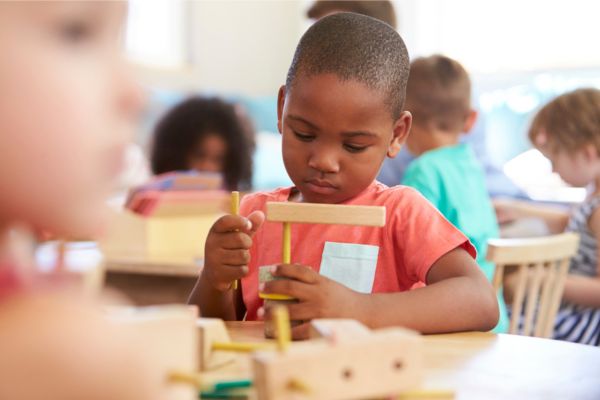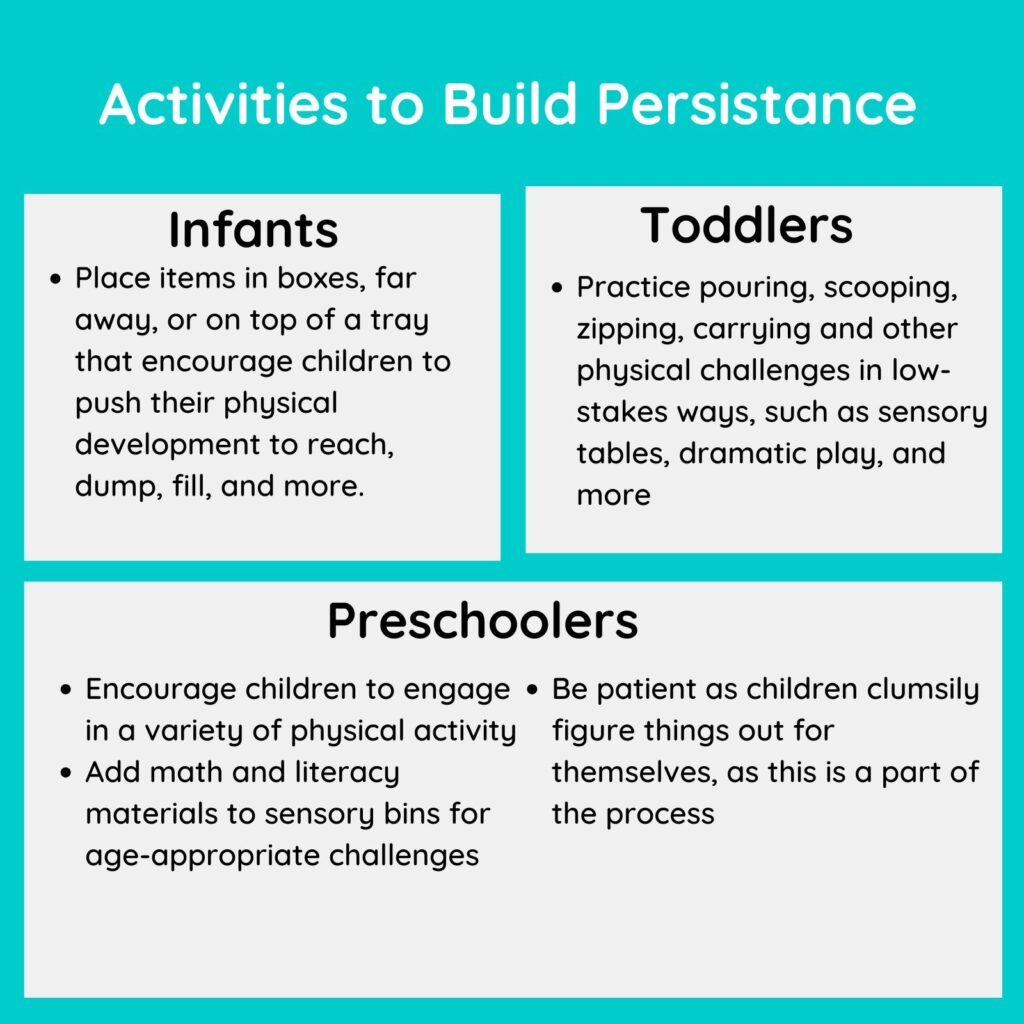
As young children learn and grow, they will work through physical, emotional, and academic challenges that require them to try many times before they succeed. Caregivers can work to find a balance between taking a step back, offering verbal prompts, modeling positive approaches to learning, and guiding children according to what is appropriate for their stage in development.
Humans are able to persist through all types of tasks. Humans might persist through physical challenges, as they run marathons and climb mountains, through mental as they complete years of schooling for a medical degree or to write a book, or emotional as they support each other through sickness or visit lonely neighbors for years after a loss. For the small child, the world may seem full of obstacles as they learn how to maneuver their bodies, minds, and spirits in a complex world. Adults can help children to foster a healthy attitude towards challenges, as children develop the social-emotional skill of persistence.
In infancy, it is important for adults to spend time playing with children where they can expose the language of persistence. This might sound like words of encouragement so that children can develop a sense of security. Infants may look to a trusted adult for reassurance when trying something new, and this back-and-forth is wonderful as children learn that the adult is there to keep them safe while they try scary new things.
While it can be tempting to do things for the child, it is also important to find a balance between independence and assistance. As children are developing language, you can work with them to learn how to ask for help. This can prevent tantrums when they get frustrated, or disasters like spills or crashes when children try a little too hard to complete a task. Children can learn how to ask for help, and then they can complete a task with the moral support of an adult, who can offer suggestions or ideas when tasks get very difficult. For example, if a child becomes frustrated with a difficult puzzle, the adults might offer suggestions such as “I see all of the pieces are upside down–I wonder if there’s a way that we can look at all the patterns and see what colors go together.” With this prompt, the adult is offering hints, and they can come to a conclusion together.
Additionally, educators and caregivers can work to find the right materials that encourage children to persist, which can be a challenge with a mixed-age group. If an activity is too easy, older children may become bored, and if an activity is too difficult, younger children may grow frustrated. We encourage educators to use open-ended materials, like long periods of sensory play with embedded learning objectives and many chances to play with “imperfect” materials like loose parts. For example, with a sensory bin, educators might add letters or numbers to add a bit of challenge for older children, while younger children can still enjoy the sensory aspects of the activity. Or, when working with recycled materials or loose parts, the pieces may not be “perfect” and children will need to think creatively about how to build and create with these materials such as using toast as wood to build a structure in our “Toast Construction” activity.
We also encourage educators to work on projects with children for a long period of time, over days or weeks, as this helps children to understand that often in life things are not completed in one sitting. For example, to make a “Three Pigs Outdoor Theatre”, the group can make “DIY Bricks”, along with the characters of the story painting rocks to represent the pigs and wolf. This process can take place over a number of days. In adulthood, we often have to set short- and long-term goals, and need to break them down into smaller tasks. We can introduce this concept to children by extending their learning and iterating on projects that interest children. This might take the form of listening when children want to build or create for their learning area, or when they want to track changes or trends over time, such as the weather or the route of a garbage truck.
At Rayz Kidz, we’re here to support you, the make planning your week easy and your days joyful. To find activities that focus on opportunities for developing independence along with the other 29 important skills of early childhood development, explore the Rayz Kidz app and the Rayz Kidz curriculum.
